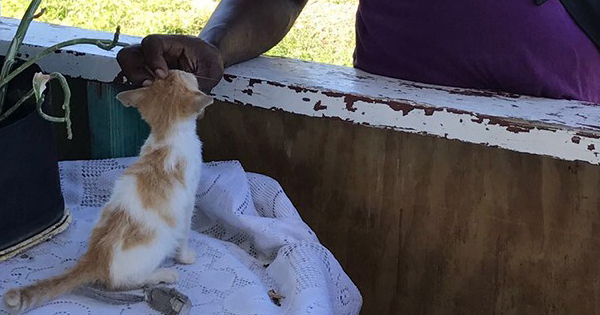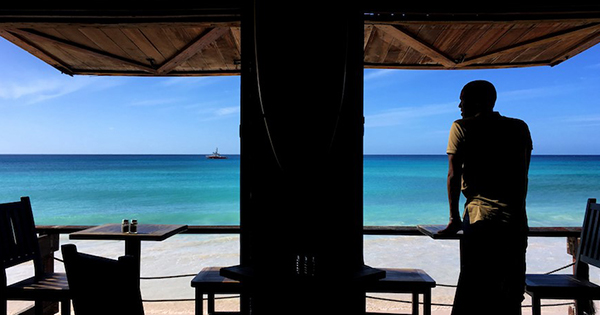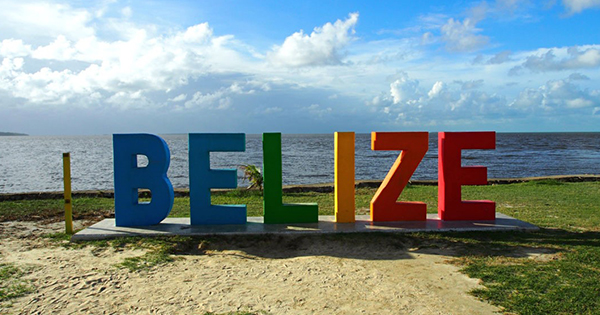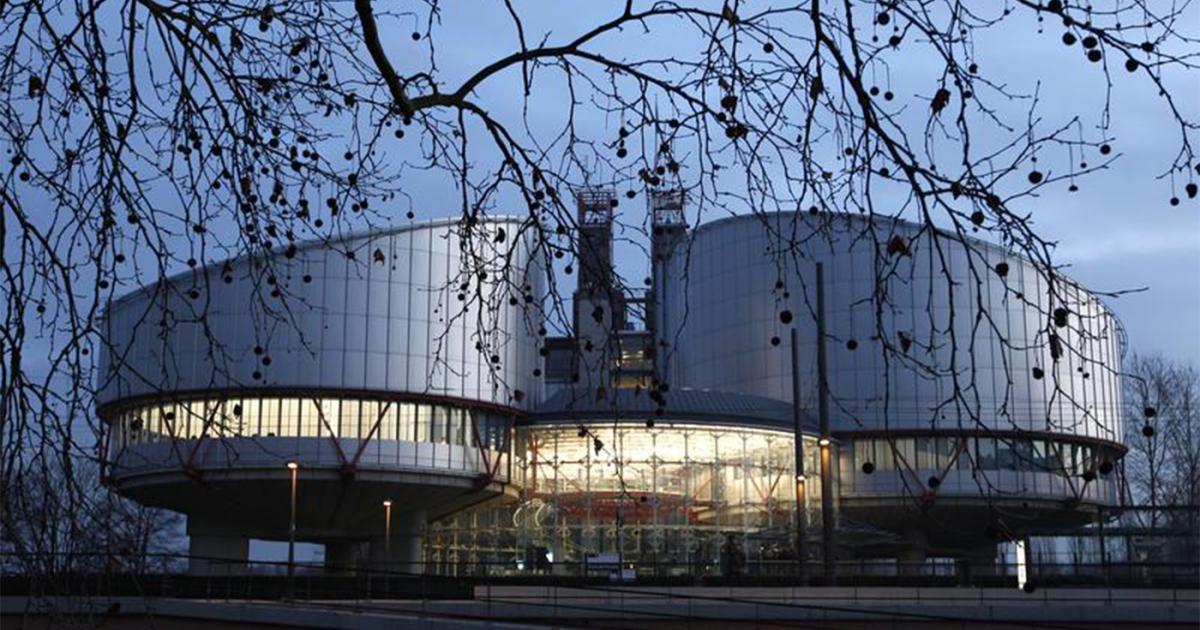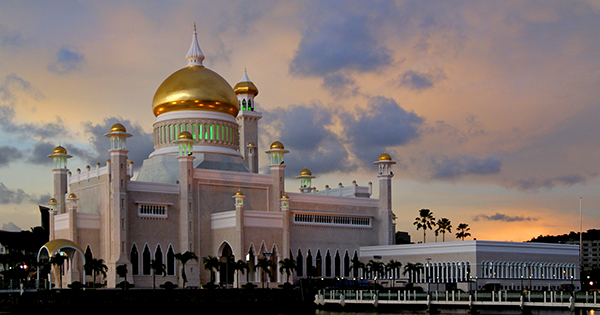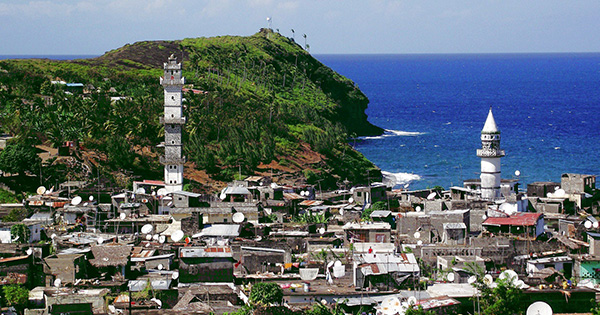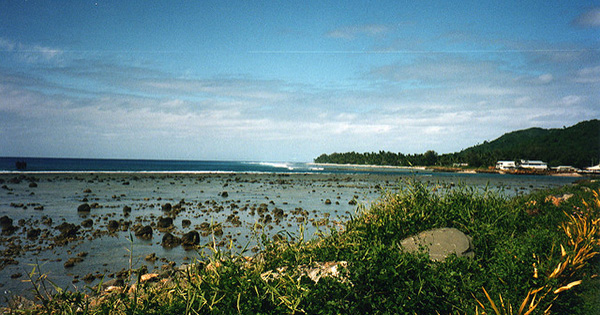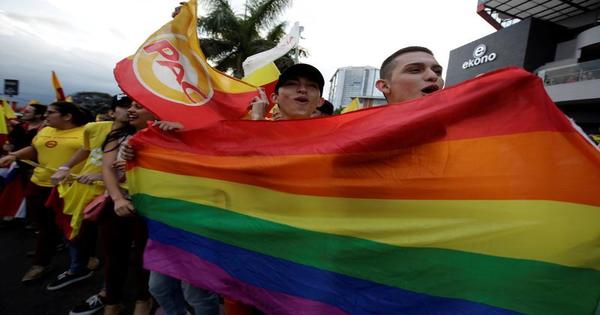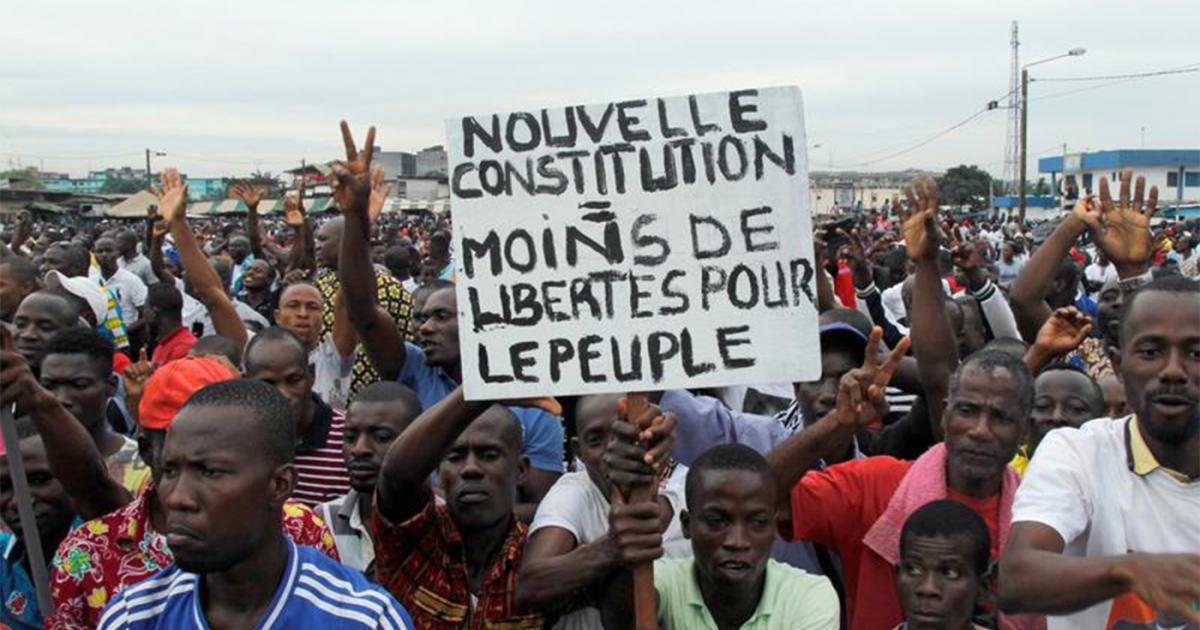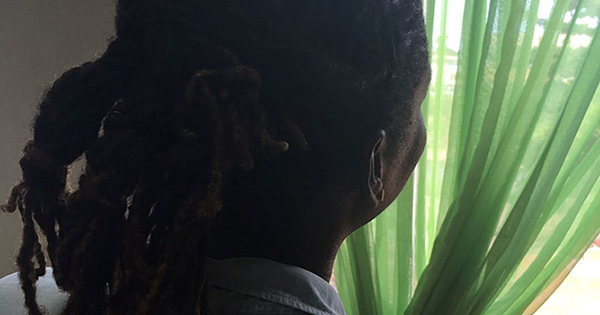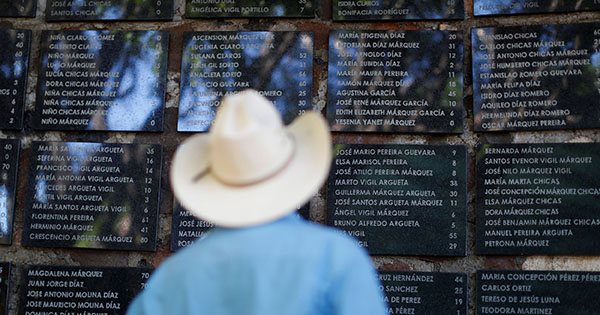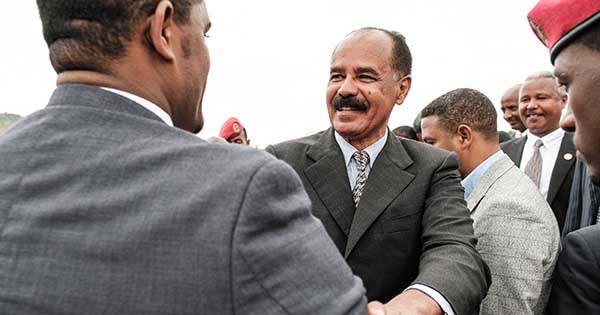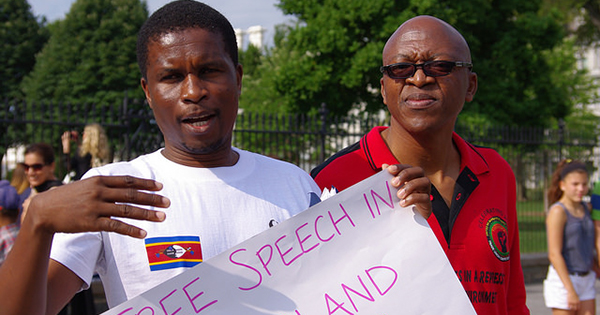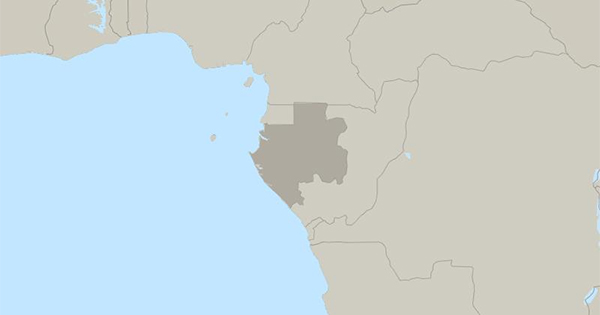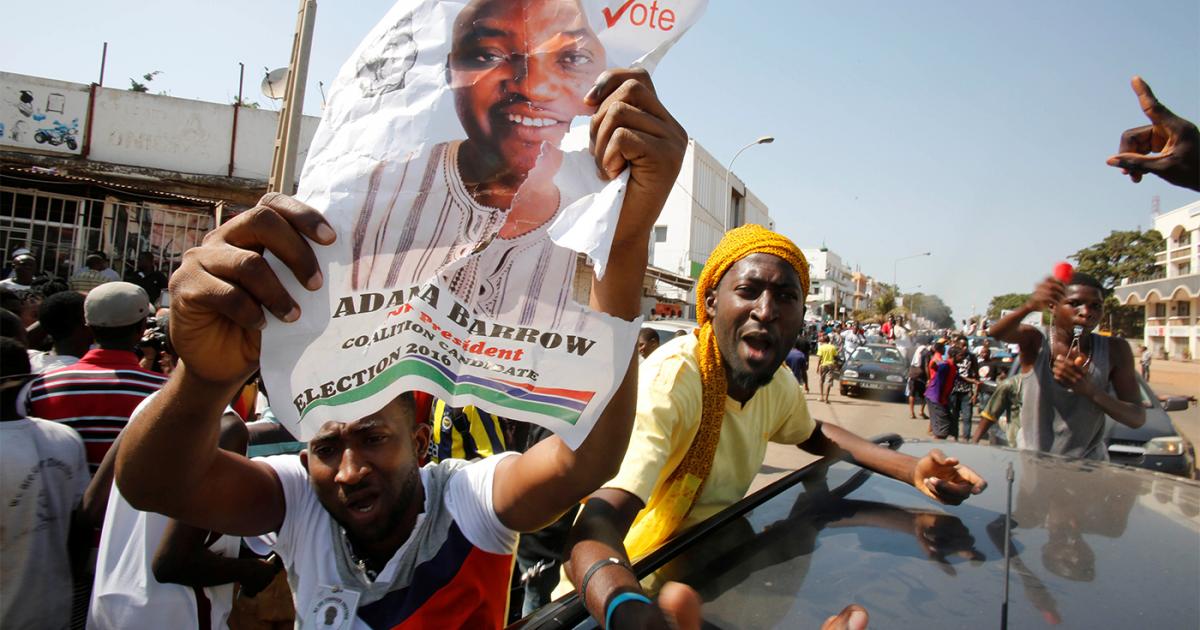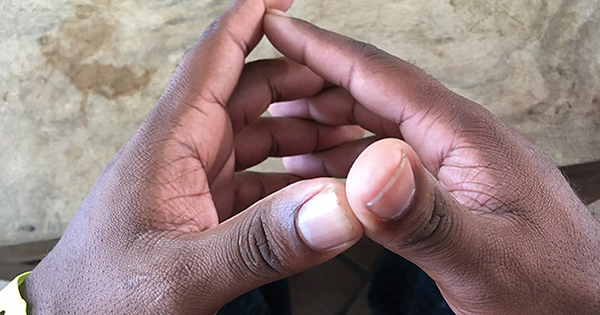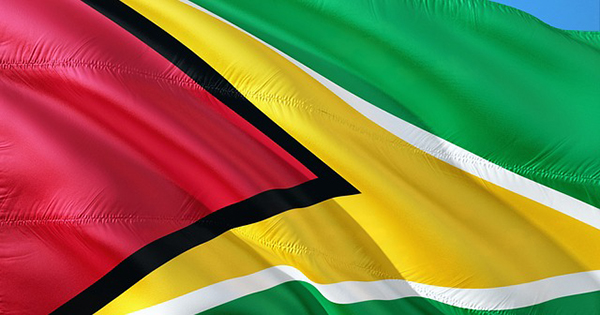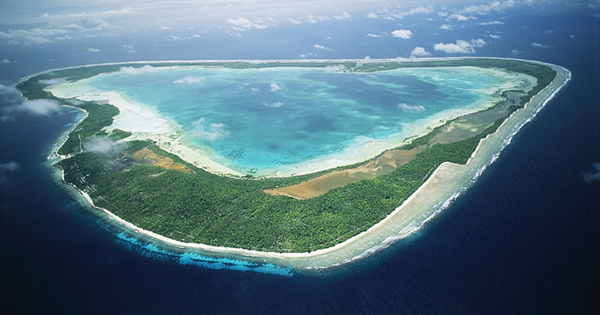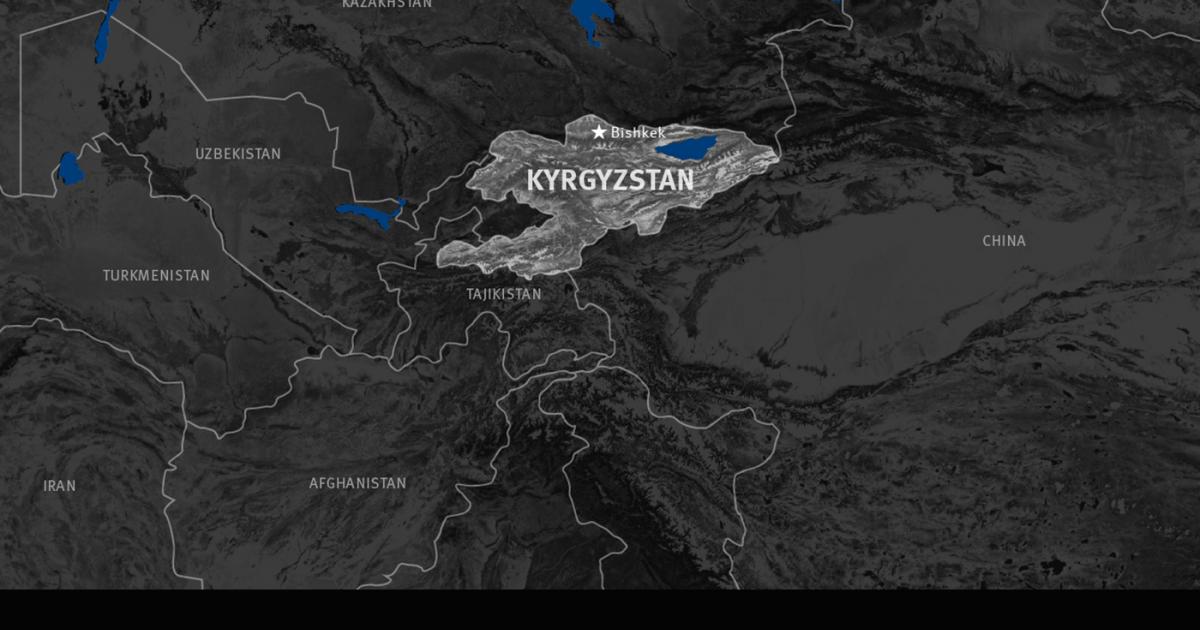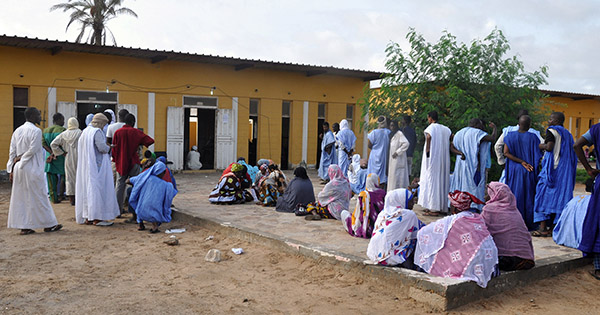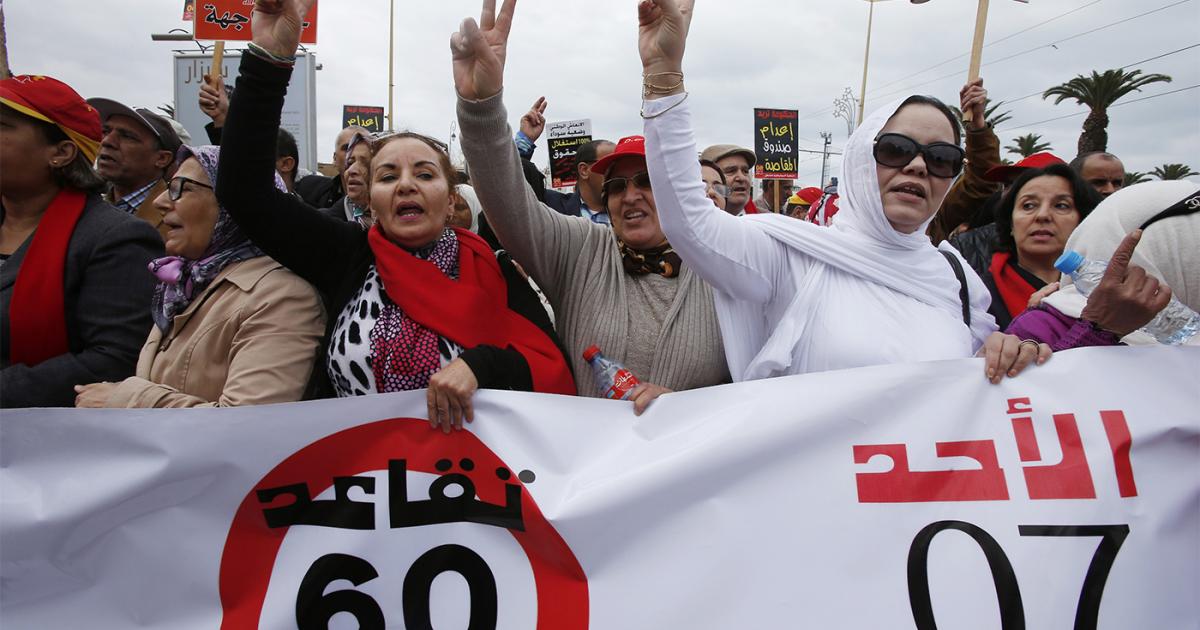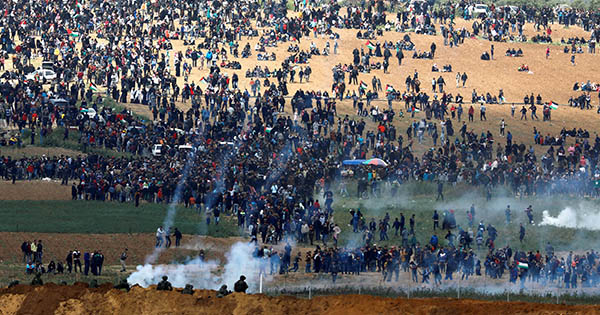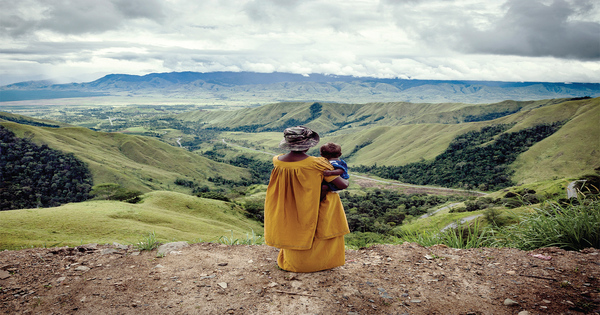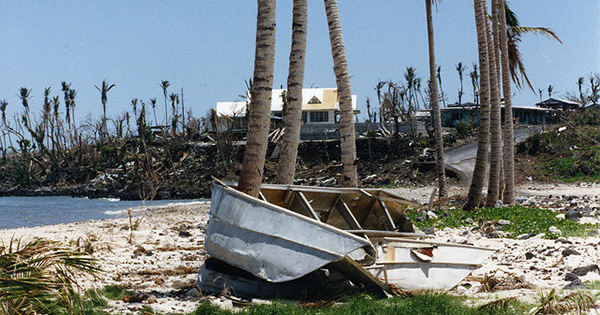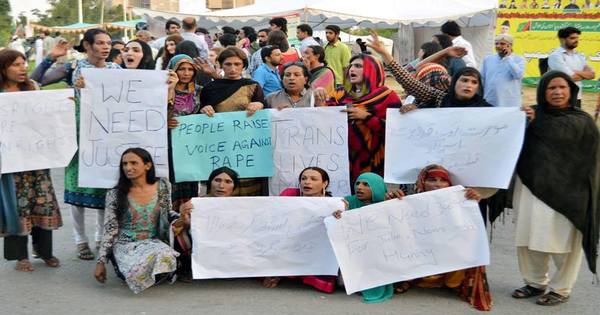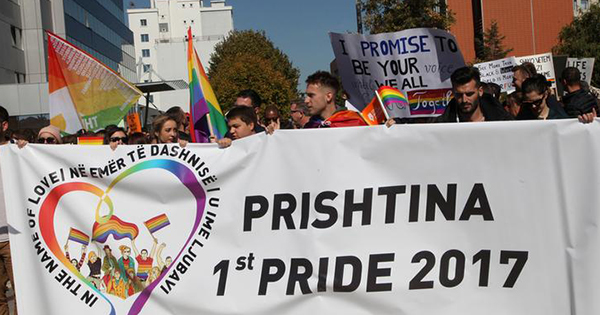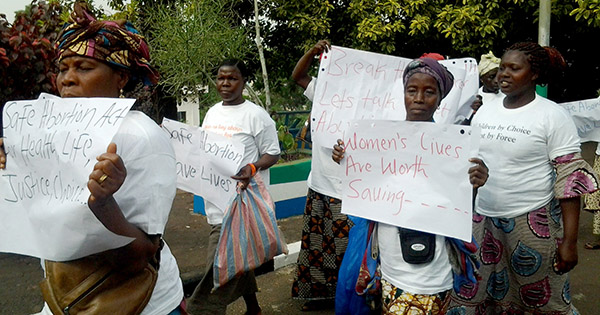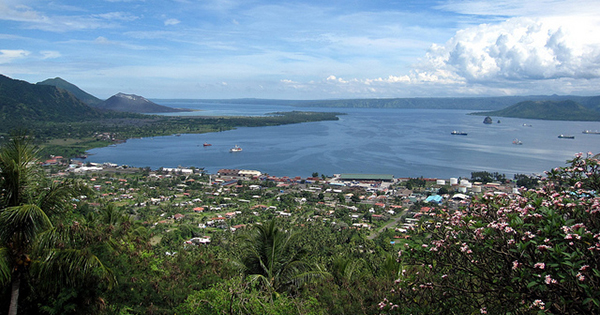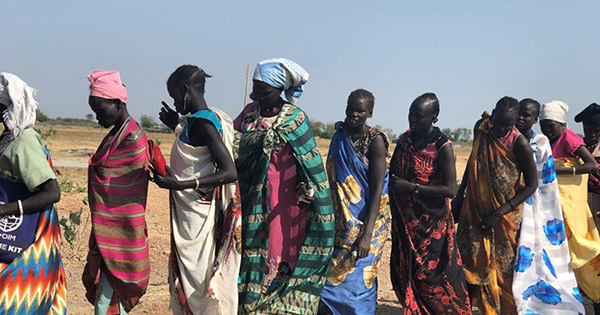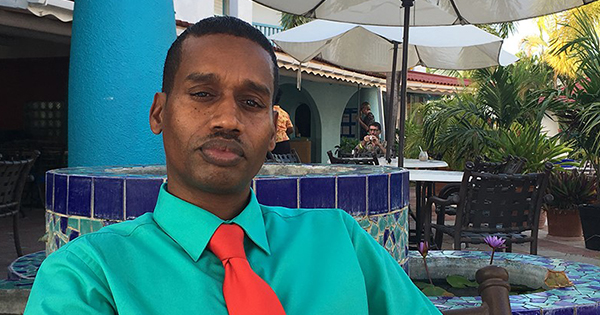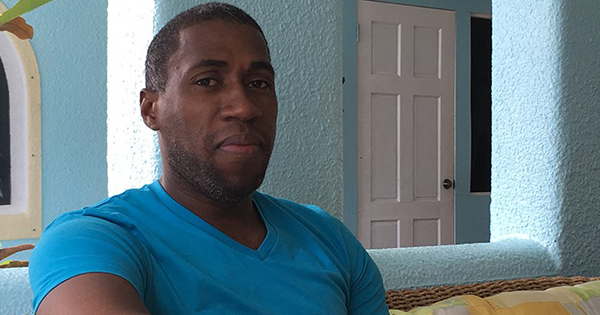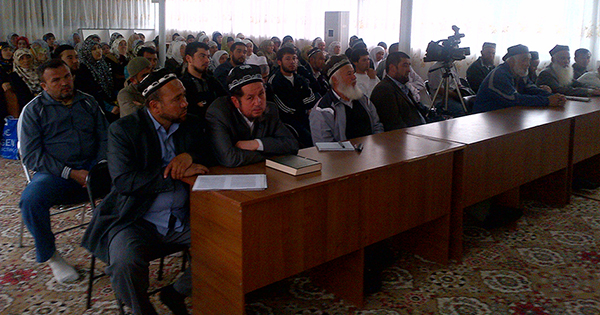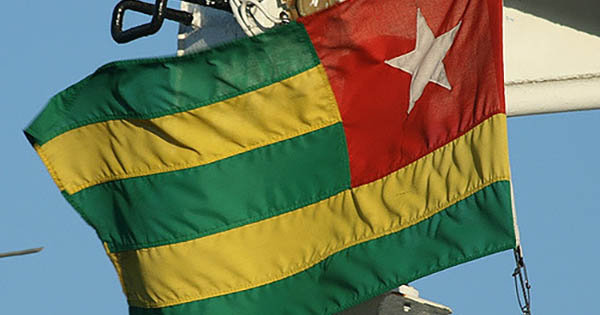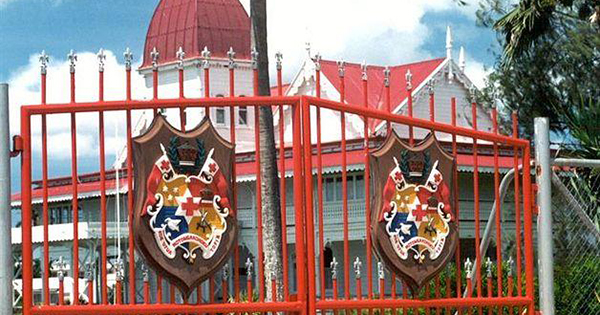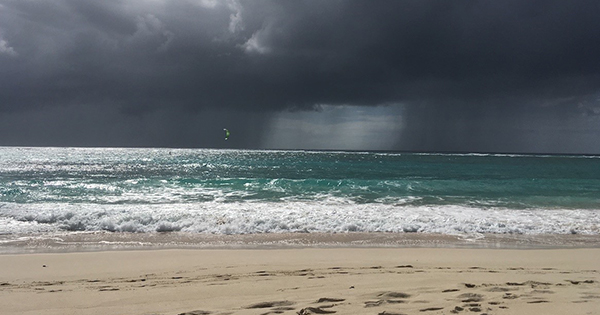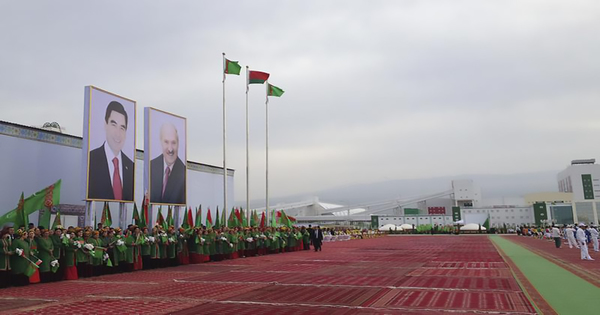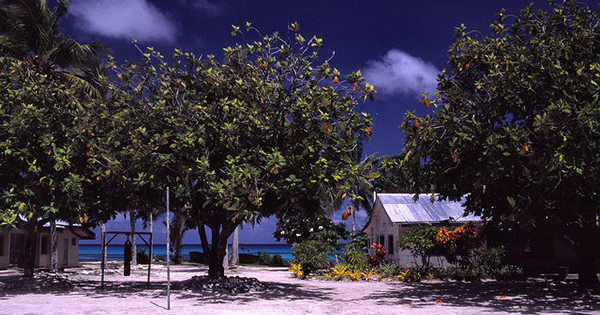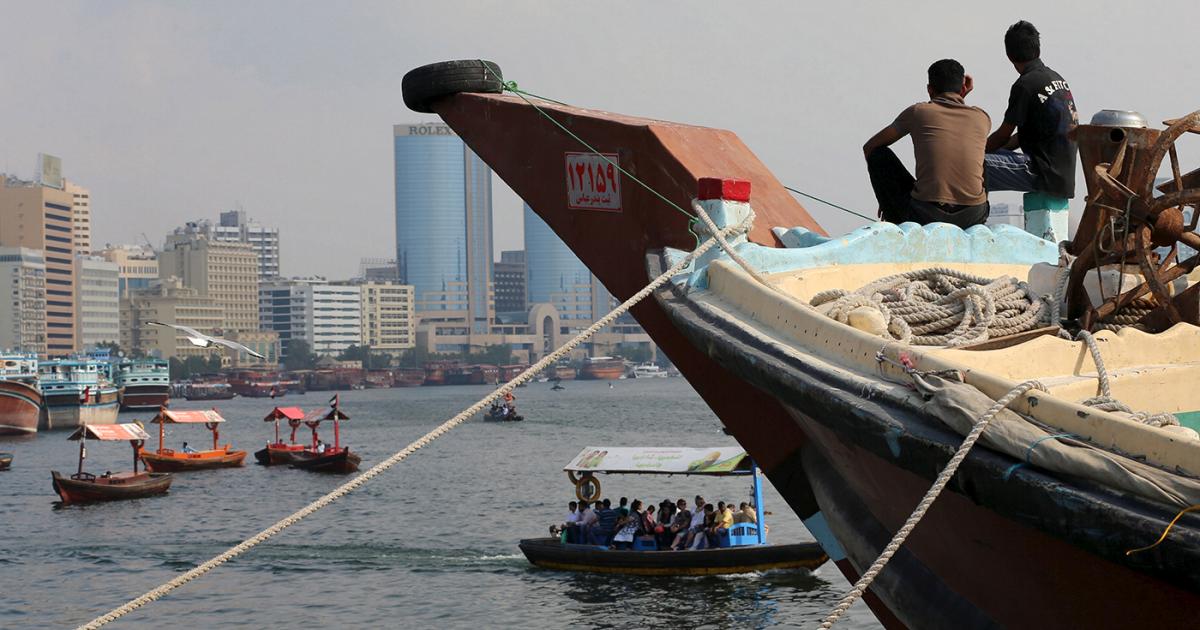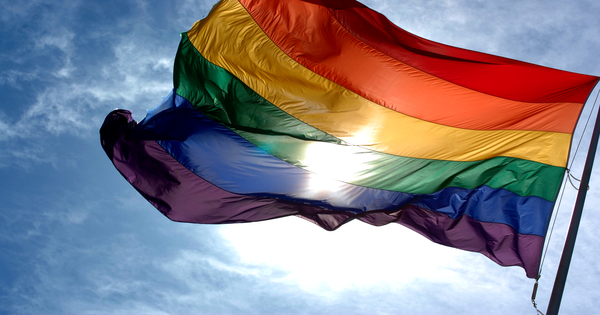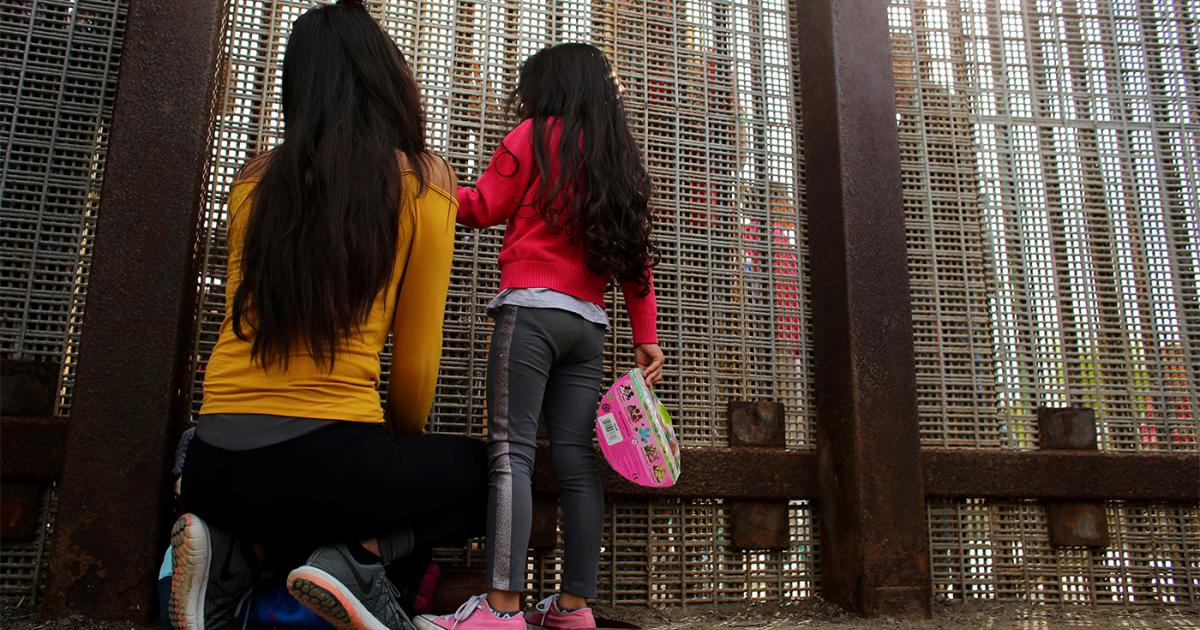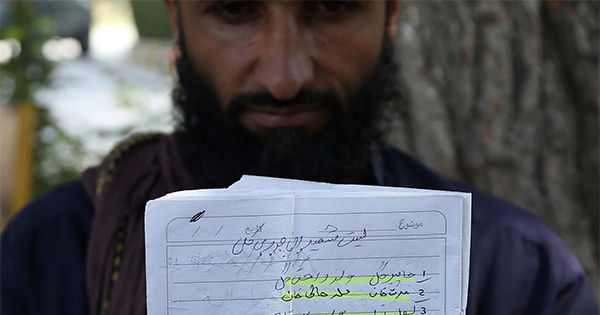
Afghanistan
In February 2018 Afghanistan adopted a new penal code that explicitly criminalizes consensual same-sex relations. More »
Algeria
Same-sex relations are punishable under article 338 of the penal code by up to two years in prison. More »
Angola
In February 2021, a new penal code came into effect in Angola that no longer criminalizes consensual same-sex conduct, scrapping colonial-era provisions that characterized homosexuality as “vices against nature.” The new penal code also prohibits discrimination on the grounds of sexual orientation. More »
Antigua and Barbuda
Antigua and Barbuda’s 1995 Sexual Offences Act criminalizes the act of “buggery” between consenting adults with a sentence of 15 years in prison, and acts of “serious indecency” with up to 5 years. Human Rights Watch has documented anti-LGBT violence and threats faced by gay men and trans women in Antigua and Barbuda. More »
Argentina
In 2010, Argentina became the first Latin American country to legalize same-sex marriage at a national level. The Civil Marriage Law allows same-sex couples to enter civil marriages and affords them the same legal marital protections as different-sex couples, including adoption rights and pension benefits. Since 2010 more than 20,000 same-sex couples have married nationwide. More »
Armenia
LGBT people in Armenia face harassment, discrimination, and violence. Public debate around the ratification of the Council of Europe Convention on Preventing and Combating Violence Against Women and Domestic Violence (Istanbul Convention) descended to hateful and derogatory speech against LGBT people by some public officials, who falsely suggested that the convention aims to promote “LGBT propaganda” and legitimize same-sex marriage. More »
Australia
Three Australian states passed bills in 2020 and 2021 prohibiting conversion therapy aimed at changing a person’s sexual orientation or gender identity. In August, Queensland issued a law prohibiting health service providers from performing conversion therapy, defined as “a practice that attempts to change or suppress a person’s sexual orientation or gender identity,” on any person. More »
Azerbaijan
In April 2020, police detained around 14 gay men and transgender women, claiming they engaged in illegal sex work. More »
Bahrain
Although no law explicitly criminalizes same-sex relations, authorities have used vague penal code provisions against “indecency” and “immorality” to target sexual and gender minorities. There is no law that prohibits discrimination on the grounds of gender identity or sexual orientation. More »
Bangladesh
Section 377 of the Bangladeshi penal code punishes “carnal intercourse against the order of nature” by up to life imprisonment. The government has taken some positive steps in recent years, such as declaring legal recognition of a third gender category for hijras. More »
Barbados
Chapter 154 of the 1992 Sexual Offences Act punishes any person who commits “buggery” with life imprisonment, and any person who commits an “act of serious indecency” with 10 years in prison. More »
Belarus
Belarus’ 2017 Law on the Protection of Children from Information Harmful to their Health and Development may be used to restrict dissemination of neutral or positive information about lesbian, gay, bisexual, and transgender (LGBT) people as “discrediting the institution of the family.” More »
Belize
In 2016 the Belize Supreme Court became the first Commonwealth Caribbean Court to hold that laws that criminalize same-sex intimacy were unconstitutional, affirming the rights of LGBT people in Belize to dignity, privacy, and equality before the law. More »
Bolivia
In 2010, Bolivia passed a law that provides legal protection against discrimination on the basis of sexual orientation and gender identity. More »
Bosnia and Herzegovina
The second-ever Sarajevo Pride march took place in August 2020. The Sarajevo Open Center (SOC), a lesbian, gay, bisexual, transgender, and intersex (LGBTI) and women’s rights group, informed Human Rights Watch that it observed an increase in online threats against activists around the time of the march. More »
Botswana
In June 2019, following several delays and postponements, Botswana’s High Court heard a case challenging the constitutionality of laws prohibiting consensual same-sex conduct. More »
Brazil
President Jair Bolsonaro has a long history of anti-LGBT comments as well as vocal opposition to comprehensive sexuality education on the grounds that it constitutes “early sexualization.” The president and members of his cabinet continue to peddle such rhetoric. More »
Brunei
On April 3, 2019, Brunei’s Syariah Penal Code (2013) went into effect. The draconian law punishes liwat (any form of anal intercourse) or zina (sex outside of marriage) between partners of any sex, with death by stoning (articles 68, 69, 82, 85, 86). More »
Burundi
Burundi punishes consensual same-sex sexual relations between adults with up to two years in prison under Article 567 of the penal code. Article 29 of the Constitution of Burundi explicitly bans same-sex marriage. More »
Cameroon
Cameroon’s penal code punishes “sexual relations between persons of the same sex” with up to five years in prison. More »
Canada
In June 2018, the Senate passed Bill C-66, which expunges the records of individuals who were prosecuted because of their sexuality when same-sex conduct was criminalized in Canada. The bill follows Prime Minister Trudeau’s 2017 apology in the House of Commons for the historic mistreatment of sexual minorities by the Canadian government. More »
Central African Republic
The Central African Republic has no blanket ban on same-sex conduct, but its criminal code is discriminatory, including sanctions on homosexual conduct – but not heterosexual conduct – in public. More »
Chad
In 2017, Chad’s president signed into law a new Penal Code that, for the first time, prohibits consensual same-sex relations. More »
Chile
A gender identity law took effect in December 2019. It allows transgender people over 14 years old to change their name and gender in the civil registry without undergoing surgery. Married people, however, must divorce before exercising their right to legal gender recognition. More »
China
While China decriminalized homosexual conduct in 1997, it lacks laws protecting people from discrimination on the basis of sexual orientation or gender identity, and same-sex partnership is not legal. More »
Colombia
In recent years, authorities have taken several steps to recognize the rights of LGBT people. More »
Comoros
Comoros’s penal code punishes “impudent acts” or “acts against nature” with two to five years in prison and a fine. More »
Cook Islands
Cook Islands’ penal code punishes sodomy and “indecent acts between males” with five to seven years in prison. More »
Costa Rica
In 2016, Costa Rica requested that the Inter-American Court of Human Rights issue an interpretation of the right to privacy and the right to equal protection under the American Convention on Human Rights in connection with LGBT rights claims. More »
Côte d’Ivoire
Côte d’Ivoire does not criminalize same-sex conduct, and the 2019 criminal code removed references to acts between members of the same sex as an aggravating factor in cases of public indecency. More »
Cuba
Article 42 of the Cuban Constitution prohibits discrimination on the basis of sexual orientation and gender identity. However, many LGBT people suffer violence and discrimination, particularly in the country’s interior. More »
Dominica
Section 16 of the 1998 Sexual Offences Act punishes same-sex conduct between two consenting adults with 10 years in prison, and Section 14 punishes any person who commits “gross indecency” with 5 years in prison. More »
Ecuador
On June 13, 2019, Ecuador’s highest court ruled to recognize same-sex marriage, declaring the country’s marriage legislation discriminatory and unconstitutional and buttressing its argument with the Inter-American Court of Human Rights’ landmark 2017 opinion. In July 2019, the Civil Registry registered the first same-sex marriage. More »
Egypt
Egypt continues to arbitrarily arrest and detain people based on their sexual orientation or gender identity and subject them to torture and ill-treatment in detention, including forced anal examinations. More »
El Salvador
LGBT people are targets of violence by police, gangs, and others. Between October 2019 and April 2020 alone, at least seven trans women and two gay men were murdered in El Salvador, with details in the cases suggesting the killers had been motivated by hatred based on the victims’ gender identity or sexual orientation. More »
Eritrea
Eritrea’s 2015 penal code punishes homosexual conduct with five to seven years in prison. More »
Eswatini (formerly Swaziland)
A colonial-era law criminalizes “sodomy,” with an unspecified sentence. In spite of this law, lesbian, gay, bisexual, and transgender (LGBT) activists successfully held the first ever Eswatini Pride event in June 2018, with hundreds marching in the streets of Mbabane in support of LGBT equality. More »
Gabon
In July 2020, Gabon’s parliament voted to repeal a law, passed in July 2019, that had outlawed sexual relations between persons of the same sex for the first time. More »
Gambia
Consensual same-sex sexual activity for both men and women is illegal in The Gambia and carries a sentence of between 5 and 14 years in prison. More »
Georgia
Georgia’s 2014 Law on Elimination of All Forms of Discrimination enumerates sexual orientation and gender identity as grounds for protection, and Georgian law provides sanctions for hate crimes against LGBT people. However, in practice, LGBT people and LGBT rights activism in Georgia continue to face hostile social attitudes and discrimination. More »
Ghana
Ghana has taken substantial positive steps in its treatment of LGBT people. At least two government agencies, the Ghana Police Force and the Commission on Human Rights and Administrative Justice, have reached out to LGBT people and taken proactive steps to ensure their protection in state operations. On the other hand, Human Rights Watch has documented the impact of Ghana’s 1960 Criminal Offences Act, Section 104(1)(b), which criminalizes consensual same-sex conduct between adults and contributes to a climate of fear and violence for LGBT Ghanaians. More »
Grenada
Article 430 of Grenada’s Criminal Code of 1987 defines “any grossly indecent act” as a misdemeanor. Article 431 punishes “unnatural connexion” with a sentence of 10 years, a provision that has been interpreted in at least three cases to include consensual anal intercourse between same-sex persons. More »
Guatemala
During the first four weeks of 2021, at least five gay and transgender people were reportedly killed in Guatemala. The spate of killings was, sadly, not out of the ordinary: in 2020, human rights ombudsperson Jordán Rodas said, at least 19 people known to be lesbian, gay, bisexual or transgender (LGBT) were murdered in Guatemala. He called on the Attorney General’s office to establish a special unit to investigate anti-LGBT hate crimes. More »
Guinea
Guinea’s penal code punishes undefined indecent acts or acts against nature with six months to three years in prison. More »
Guyana
Guyana criminalizes “acts of gross indecency” between men with two years in prison (article 352). The criminal code sentences any person convicted of “buggery” to life in prison (article 354). More »
Haiti
LGBT people suffer high levels of discrimination in Haiti. No comprehensive civil law protects against discrimination. More »
Honduras
LGBT people in Honduras are frequently the targets of violence and discrimination. They face violence from gangs, the national civil police and the military police, members of the public, and their own families, as well as extortion by gangs and discrimination in schools and in the workplace. More »
Hungary
The Hungarian government actively undermines the rights of LGBT people. In May 2020, the parliament blocked the ratification of the Council of Europe Convention on Combating Violence Against Women and Domestic Violence, known as the Istanbul Convention, saying it “promotes destructive gender ideologies.” Also in May, a new law made it impossible for transgender or intersex people to legally change their gender, putting them at risk of harassment, discrimination, and even violence in daily situations when they need to use identity documents. More »
India
In 2020, the central government published the draft Transgender Persons (Protection of Rights) Rules and sought comments from civil society. More »
Indonesia
Indonesian authorities continued their years-long pattern of unlawfully apprehending LGBT people in private spaces. Indonesia’s central government has never criminalized same-sex behavior, but no national laws specifically protect LGBT people against discrimination. More »
Iran
Under Iranian law, same-sex conduct is punishable by flogging and, for men, the death penalty. Although Iran permits and subsidizes sex reassignment surgery for transgender people, no law prohibits discrimination against them. More »
Iraq
Iraq’s criminal code does not explicitly prohibit same-sex sexual relations, but Article 394 of the penal code makes it illegal to engage in extra-marital sex, a violation of the right to privacy that disproportionately harms LGBT people. More »
Israel
In August 2019, an Israeli judge ruled that billboard companies cannot reject homophobic political advertisements after two companies denied space on the outside wall of a Jerusalem hotel to a far-right party, Noam. The ads linked gay people with child trafficking. More »
Italy
In November 2020, the lower house of parliament voted in favor of a bill that would make incitement to violence or discrimination “based on sex, gender, sexual orientation or gender identity” a crime, and make such bias an aggravating factor in sentencing. More »
Jamaica
Sections 76, 77, and 79 of Jamaica’s Offences Against the Person Act (1864) criminalize both consensual and non-consensual sex between men and punish same-sex conduct with a sentence of up to 10 years in prison or hard labor. The Inter-American Commission on Human Rights issued decisions in two cases calling on Jamaica to repeal these laws. More »
Japan
Japan’s national government does not recognize same-sex unions and mandates sterilization as a prerequisite for transgender people’s legal recognition. In January 2019, the Supreme Court ruled that the 2004 Gender Identity Disorder Special Cases Act, which requires that transgender people be sterilized to obtain documents reflecting their gender identity, was constitutional, stating that there is a “need to avoid abrupt changes in a society where the distinction of men and women have long been based on biological gender.” More »
Jordan
Jordan has no laws that explicitly criminalize same-sex relations. The penal code includes vague “immorality” provisions that could be used to target sexual and gender minorities, as occurred on at least one occasion in 2014. More »
Kazakhstan
LGBT people in Kazakhstan routinely face harassment, discrimination, and the threat of violence. Kazakhstan’s constitution and laws do not explicitly prohibit discrimination on the basis of gender identity or sexual orientation, and there is no stand-alone anti-discrimination law. More »
Kenya
Kenya punishes consensual same-sex relations with up to 14 years in prison. The High Court rejected a constitutional challenge to the ban in May 2019. More »
Kuwait
The penal code criminalizes sexual relations outside marriage, and article 193 punishes consensual same-sex relations between men by up to seven years in prison. Transgender people can face one year in prison, a 1,000 Kuwaiti dinar fine (US$3,293), or both, under a 2007 penal code provision that prohibits “imitating the opposite sex in any way.” More »
Kyrgyzstan
LGBT people face ill-treatment, extortion, and discrimination by state and non-state actors. More »
Lebanon
LGBT people were part and parcel of the nationwide protests that began on October 17, 2019. By taking their struggle to the streets, through chants, graffiti, and public discussions, LGBT people moved demands for their rights from the margins to mainstream discourse. More »
Libya
The penal code prohibits all sexual acts outside marriage, including consensual same-sex relations, and punishes them with flogging and up to five years in prison. More »
Malawi
Section 153 of Malawi’s penal code provides that any person found guilty of committing an “unnatural offence/offence against the order of nature” is subject to up to 14 years in prison, with or without corporal punishment. More »
Malaysia
Discrimination against LGBT people remains pervasive in Malaysia. Federal law punishes “carnal knowledge against the order of nature” with up to 20 years in prison, while numerous state Sharia laws prohibit both same-sex relations and non-normative gender expression, resulting in frequent arrests of transgender people. More »
Maldives
The Maldivian penal code criminalizes adult, consensual same-sex sexual conduct. The punishment can include imprisonment of up to eight years and 100 lashes and applies equally to men and women. More »
Mauritania
Article 308 of the penal code prohibits homosexual conduct between Muslim adults and punishes it with death by public stoning for men. If between two women, then the law prescribes imprisonment for three months to two years and a fine. More »
Mauritius
Mauritius punishes sodomy with up to five years in prison. Three cases challenging the constitutionality of the law are currently pending before the Supreme Court. More »
Morocco
Consensual sex between adults who are not married to one another is punishable by up to one year in prison. Moroccan law also criminalizes what it refers to as acts of “sexual deviancy” between members of the same sex, a term that authorities use to refer to homosexuality more generally, and punishes them with prison terms of up to three years. More »
Mozambique
Since the decriminalization of homosexuality in Mozambique in 2015, and in spite of a November 2017 court decision that declared unconstitutional a law with vague “morality” provisions that had been used to justify denying registration to LGBT groups, the government has still not registered the country’s largest such group, Lambda. More »
Myanmar
Myanmar’s penal code punishes “carnal intercourse against the order of nature” with up to 10 years in prison and a fine. More »
Namibia
Namibia criminalizes sodomy and “unnatural sexual offences” between men. The sentence is unspecified. More »
Nepal
Nepal has a record of relatively progressive legal protections for LGBT people, including landmark Supreme Court rulings. However, these rulings are not consistently implemented by officials. More »
Nigeria
Nigerian laws, policies and political discourse continue to reinforce intolerance with regard to same-sex relations and gender nonconformity. Nigerian law criminalizes same-sex conduct as well as public show of same-sex amorous relationships, same-sex marriages, and the registration of gay clubs, societies, and organizations. More »
Occupied Palestinian Territory
A British Mandate-era law still in force in Gaza punishes “unnatural intercourse” of a sexual nature, understood to include same-sex relationships, with up to 10 years in prison, although Human Rights Watch has not documented detentions for same-sex conduct. More »
Oman
Oman promulgated a new penal code in January 2018 that criminalizes non-normative gender expression. More »
Pakistan
In the early stages of municipal lockdowns during the Covid-19 pandemic, Pakistani officials and political leaders expressed explicit support for transgender communities. This follows a major development in 2019, when Pakistan’s parliament passed a law guaranteeing basic rights for transgender citizens and outlawing discrimination by employers. More »
Panama
Panama has no comprehensive civil legislation protecting people from discrimination on the grounds of sexual orientation and gender identity. More »
Papua New Guinea
The criminal code outlaws sex “against the order of nature,” which has been interpreted to apply to consensual same-sex acts and is punishable by up to 14 years’ imprisonment. Gay asylum seekers on Manus Island have reported being harassed and sexually assaulted by other asylum seekers. More »
Peru
Same-sex couples in Peru are not allowed to marry or enter into civil unions. Bills to recognize these rights are pending in Congress. In November 2020, the Constitutional Tribunal denied recognition to a same sex-marriage contracted abroad. More »
Philippines
The Philippine Congress failed in 2020 to pass pending legislation prohibiting discrimination based on sexual orientation and gender identity in employment, education, health care, housing, and other domains. It also has not passed legislation recognizing same-sex partnerships and extending benefits to same-sex couples. More »
Poland
Polish authorities’ crackdown on LGBT rights activists intensified in 2020, in particular on August 7, when hundreds of demonstrators gathered outside the Warsaw offices of the Campaign Against Homophobia, an LGBT rights group, to protest an order to arrest a non-binary activist named Margo Szutowicz accused of causing damage in June to a truck promoting false anti-LGBT propaganda. More »
Qatar
Qatar’s penal code criminalizes “sodomy,” punishing same-sex relations with imprisonment between one to three years. More »
Russia
Russian authorities continue to use the “gay propaganda” law as a tool for discrimination. More »
Rwanda
Rwanda does not criminalize consensual same-sex conduct or non-normative gender expression. However, in December 2020, media reported that police frequently detain transgender people arbitrarily and for indeterminate amounts of time at facilities like Gikondo transit center, an unofficial detention center where individuals accused of exhibiting “deviant behaviours” are sent as part of a rehabilitation process. More »
Saudi Arabia
Saudi Arabia has no written laws concerning sexual orientation or gender identity, but judges use principles of uncodified Islamic law to sanction people suspected of committing sexual relations outside marriage, including adultery, extramarital and homosexual sex. More »
Senegal
Article 319 of Senegal’s penal code punishes “acts against nature” with a person of the same sex with up to five years in prison. More »
Serbia/Kosovo
Attacks, threats, and smear campaigns against LGBT people and activists continued in 2020. Between January and September, Serbian LGBT rights organization DA SE ZNA! recorded 17 hate incidents against LGBT people, including 8 physical attacks and 9 threats. More »
Singapore
On March 30, 2020, the Singapore High Court dismissed three cases seeking to strike down a colonial-era law that makes consensual gay sex a crime. More »
Solomon Islands
The penal code of the Solomon Islands punishes buggery and indecent practices with up to 14 years in prison. More »
Somalia
Somalia’s penal code – the revision of which has been pending for the last four years – punishes same-sex intercourse with imprisonment of between three months and three years. More »
South Africa
On March 25, 2019 the South African government launched a National Action Plan (NAP) to combat Racism, Racial Discrimination, Xenophobia and Related Intolerance. The NAP expressly recognizes that LGBT individuals constitute a priority group given the constitutional goals of equality and non-discrimination and the need for protection against intolerance. More »
South Korea
The growing LGBT movement in South Korea continues to trigger increased resistance by conservative Christian anti-LGBT groups. While Pride parades and festivals are becoming more common, these have often met with harassment and violence by protesters. More »
South Sudan
South Sudan punishes “carnal knowledge against the order of nature” with up to 10 years in prison and a fine, under section 248 of its 2008 Penal Code Act. More »
Sri Lanka
Sections 365 and 365A of Sri Lanka’s penal code criminalize consensual same-sex conduct. Sri Lankan authorities have subjected at least seven people to forced physical examinations since 2017 in an attempt to provide proof of homosexual conduct. More »
St. Kitts and Nevis
St. Kitts and Nevis’ Offences Against the Person Act punishes the “abominable crime of buggery” with a sentence of up 10 years in prison or hard labor. The act also punishes “whosoever shall attempt to commit the said abominable crime” with up to four years in prison. More »
St. Lucia
According to the 2004 Criminal Code of St. Lucia, any act of “gross indecency” committed by people of the same sex is punishable by 10 years in prison. Under the same code, a person who commits “buggery” with the consent of another person can be sentenced to 10 years in prison. More »
St. Vincent and the Grenadines
In the 1990 Criminal Code of St. Vincent and the Grenadines, Section 146 punishes “buggery” with 10 years in prison, and Section 148 punishes an “act of gross indecency with another person of the same sex” with five years in prison. More »
Sudan
In July 2020, Sudan’s Sovereign Council amended the penal code, removing the death penalty and lashing as punishments for consensual same-sex conduct and many other offenses. More »
Syria
Article 520 of the Syrian Penal Code of 1949 prohibits “unnatural sexual intercourse,” punishable by imprisonment by up to three years. More »
Taiwan
In May 2019, lawmakers in Taiwan’s Legislative Yuan passed a bill legalizing same-sex marriage, a landmark decision, making Taiwan the first country in Asia to pass marriage equality legislation. More »
Tajikistan
LGBT people face discrimination in Tajikistan, although same-sex conduct is not criminalized. No law protects against discrimination on the grounds of sexual orientation or gender identity. More »
Tanzania
Tanzania’s Sexual Offenses Special Provisions Act of 1998 makes consensual adult same-sex conduct punishable by up to life imprisonment. The authorities frequently arrest people on suspicion that they are LGBT, although prosecutions under the law are rare. More »
Thailand
Thailand enacted a Gender Equality Act in 2015 that prohibits discrimination on the grounds of gender expression, but trans people continue to face discrimination. There has been little progress in the parliamentary review of the Justice Ministry’s Life Partnership Bill. More »
Togo
Togo’s Penal Code punishes indecent acts or acts against nature with one to three years in prison and a fine. More »
Tonga
Tonga’s Criminal Offenses Act punishes sodomy with up to ten years in prison and whipping. Tonga also prohibits “any male person” from “impersonat[ing]a female” while soliciting for an immoral purpose, prescribing a fine and up to one year in prison as punishment. More »
Trinidad and Tobago
In April 2018, the High Court ruled sections 13 and 16 of the Sexual Offences Act that criminalize “buggery” and “serious indecency” unconstitutional on grounds that they violated fundamental rights including privacy and family life. The court also found that the laws were not protected from challenge by the savings clause in the constitution. More »
Tunisia
During protests that began in Tunisia in January 2021, Tunisian security forces repeatedly targeted LGBT and intersex (LGBTI) activists and singled them out for mistreatment. The targeting involved arbitrary arrests, physical assaults, threats to rape and kill, and refusing access to legal counsel. More »
Turkey
The government’s restrictive approach to the public activities of lesbian, gay, bisexual, and transgender (LGBT) rights groups continued with the banning of events including Pride marches for a sixth year running. More »
Turkmenistan
Sodomy is a criminal offense under Turkmen law, punishable by penalties of up to two years’ imprisonment on the first offense, and 5 to 10 years if repeated. More »
Uganda
Uganda’s colonial-era law prohibits “carnal knowledge” among people of the same sex, and crackdowns on LGBT activists and ordinary people continue. During the 2020/2021 presidential election campaign, President Yoweri Museveni sought to discredit his political opposition by linking them with “homosexuals.” More »
Ukraine
Throughout 2020, far-right groups and individuals carried out hate attacks against LGBT people, which authorities often failed to investigate. More »
United Arab Emirates
Article 358 of the Penal Code criminalizes a “flagrant indecent act” and any saying or act that offends public morals. A 2020 decree amending the penal code changed the punishment from a minimum of six months to a fine of Dh1,000 to Dh50,000 (US$270-$13,000). If it is a repeated offense, the punishment is up to three months’ imprisonment or Dh100,000 ($27,000). More »
United Kingdom
In September 2020, the government released the long-awaited results of a national consultation on the Gender Recognition Act. Despite a majority of respondents indicating they would prefer the medical requirements for legal gender recognition for trans people to be removed, the government retained them while removing some administrative barriers and lowering the fee. More »
United States
In June 2020, the Supreme Court ruled that a federal law prohibiting sex discrimination in employment is inclusive of discrimination based on sexual orientation and gender identity. Congress has not yet enacted the Equality Act, a bill that would expressly prohibit discrimination based on sexual orientation and gender identity under a wide range of federal civil rights laws. More »
Uzbekistan
Uzbekistan’s criminal code punishes consensual sex between men with up to three years in prison. Men in Uzbekistan who are suspected of engaging in consensual same sex conduct face arbitrary detention, prosecutions, imprisonment as well as homophobia, threats and extortion. More »
Venezuela
Venezuela has no comprehensive civil legislation protecting people from discrimination on the grounds of sexual orientation and gender identity, though it provides limited protection in certain areas. More »
Vietnam
Vietnamese LGBT youth face widespread discrimination and violence at home and at school. Pervasive myths about sexual orientation and gender identity, including the false belief that same-sex attraction is a diagnosable and curable mental health condition, is common among Vietnamese school officials and the population at large. More »
Zambia
Section 73 of the Criminal Law (Codification and Reform) Act, 2004 punishes consensual same-sex conduct between men with up to one year in prison or a fine or both. More »
Zimbabwe
Section 73 of the Criminal Law (Codification and Reform) Act, 2004 punishes consensual same-sex conduct between men with up to one year in prison or a fine or both. This restrictive legislation contributes to stigma and discrimination against lesbian, gay, bisexual, and transgender (LGBT) people. More »



